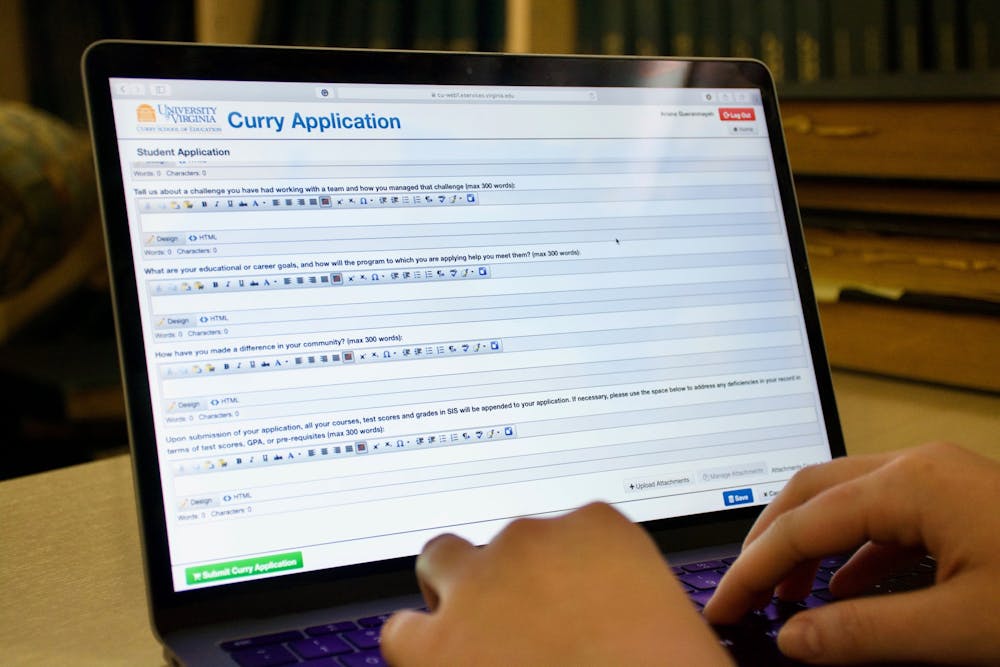The Curry School developed three new bachelor of science in education degrees that will roll out in the fall of 2020. These new undergraduate degrees will be available to the students in the class of 2023 and 2022 as applications open this spring and these two cohorts of students will kick off the program. These degrees were formed after the Curry School of Education met with various leaders in education and policy to discuss how to address the Commonwealth of Virginia's teacher shortage crisis. This meeting, held in October 2017, led to the development of legislation allowing teachers to earn a teaching degree in Virginia after just a four-year undergraduate degree.
The bachelor of science in education degrees offered cover three disciplines — early childhood education, elementary education and special education. Students who would like to pursue middle or high school education degrees must continue with the traditional degree format as they must obtain more specific education in the subject they would like to teach. While the traditional degree programs will continue to allow pathways to middle and high school teaching degrees, the new programs have goals to increase diversity in the teaching workforce and to increase the number of teachers in the commonwealth at the early stages of education.
In the past, the way to obtain a teaching degree from the Curry School of Education was to complete a full undergraduate degree in the College and then spend one to two years with the Curry School at the end of the undergraduate degree to complete a masters program. This led to a large course load as students had to complete two degrees at the same time. The goal of these new degree programs is to reduce the course load and streamline the process.
“This new option condenses [the original degree program] a little bit, and so there's a fewer number of credits that students will take overall because they're only getting one degree this time,” Curry School Dean Robert Pianta said. “They'll still take courses in the College in an area in which they may like to teach.”
While students will still complete classes in the College, they will spend two, three or more years with the Curry School to complete their training and specialization for teaching to obtain their four year degree. Because students will be transferring to the Curry School earlier, they will have more time to spend within the classroom and develop practical skills that are necessary for teaching — while still reducing the amount of time overall to get a teaching degree.
“The promise of our bachelor's degree, much like our master's degrees, is that to become a teacher, you have to have meaningful time in K-12 classrooms,” redesign leader Stephanie van Hover said.
Jillian McGraw, the director of teacher education at the Curry School, and Van Hover led the creation of the new curriculum. They hope that the new programs will address the shortage of teachers along with the diversity and dynamic status of teachers in Virginia. This new program will welcome transfers from within the University along with other colleges or community colleges. The undergraduate bachelor of science in education will allow for more pathways to teaching to be opened for the three specific disciplines and will be a more affordable path for many.
“One of the other goals by shortening the program is also reducing the financial burden for students,” McGraw said.
Creating an undergraduate teaching degree will eliminate one to two extra years of a tuition burden to students and will also allow students to apply for undergraduate aid to this degree.
As these three degrees — early childhood education, elementary education and special education— require specific training, the curriculum starts basic with what the Curry School calls foundations courses and then builds up to cover specific skills and study areas in math, science or social studies. Foundations courses would include addressing current policy, historical foundations of teaching, contemporary issues in the field and generalities about the teaching profession. A final point of the training is to focus on developing skills for the future teachers to be able to teach a diverse student body.
“They also learn strategies for modifying instruction to work with really diverse students because classrooms are looking so much more diverse every year,” McGraw said. “[They] get practice hands on within the first semester so that they're actually out in schools learning how to apply these skills.”







